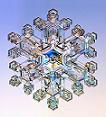
DMT-Nexus member
Posts: 190 Joined: 24-Jan-2011 Last visit: 21-Mar-2013 Location: My body for now
|
Anyone done much reading on this topic of science, the Bell Theorem by John Stewart Bell and others? Can anyone give some recommendations on foundational reading. Perhaps give an outline of a curriculum, to begin quantum self studies? I know it is a huge topic, but ultimately what I desire is to increase my knowledge of the topic, to really begin to focus on the 'awareness' aspects of quantum mechanics; 'the ghost in the atom'; the EPR paradox. Anyone here on the Nexus able to put together a 'streamline', or concise outline on this course of study - from foundations to theoretical contemplation and math? I am quite a driven person, and honestly if I had a map with some directions, I could achieve my goal. Many thanks, Fior The truth is not for all men, but only for those who seek it.
|
|
|
|
|

DMT-Nexus member
Posts: 180 Joined: 24-Oct-2010 Last visit: 12-Oct-2015
|
I'm not an expert but I found a few introductory articles: hereand here.It looks like Bell originally discovered this paradox by solving some nasty probability math. The physical effect is just an observation of what happens in 'real' life. I don't think you need the math to understand what is measured. Our universe can be bizzare sometimes. (I suppose we all know that anyway.)
|
|
|

DMT-Nexus member
Posts: 296 Joined: 25-May-2008 Last visit: 04-Aug-2013
|
Holy crap you are a badass! REally admirable for you to embark on this kind of study.
My advice:
Start with the math. Get comfortable with basic geometry and then basic calculus. With dedicated study this can be done in 6-12 months.
On to classical physics. Use your new powers of calculus and geometry to really dig into classical physics. Start with mechanics and work your way up to gasses and finally wave mechanics. This will be an important 'practice' where you learn to apply your powers of math to the cosmos. You really need to get comfortable with this first because quantum physics is entirely build on maths. Math is the foundation. If you want to understand it beyond the wikkipedia then you really must master the math first.
Now you're ready for quantum mechanics. First use your now awesome math skills to work from quantum phenomena to macro phenomena. Now you are maybe in a position to try to work out novel connections between the quantum world and the atomic world. This is how you are taught physics at uni. I figure these folks have the most experience in introducing people to quantum mechanics.
The whole project might take a count of years depending on your innate talent for math and your motivation. I would advise you take a bachelors degree in physics but if you don't have the time or money maybe the self-taught route can work. Maybe try finding a good university curriculum and following it.
If you succeed in teaching yourself quantum mechanics you will be one of the biggest badasses I have ever known.
|
|
|

DMT-Nexus member
Posts: 296 Joined: 25-May-2008 Last visit: 04-Aug-2013
|
Here's a curriculum from a well respected institution that does a lot of quantum stuff. I forgot about chemistry. In general today a lot of quantum physics research is actually done by 'quantum chemists.'
Freshman Year 35 credits
General Chemistry (CH 221, 222) 8
Foundations of Physics I (PHYS 251, 252, 253) 12
Foundations of Physics Laboratory (PHYS 290), three terms 3
Calculus I,II,III (MATH 251, 252, 253) 12
Sophomore Year 28 credits
Introduction to Differential Equations (MATH 256) 4
Several-Variable Calculus I,II (MATH 281, 282) 8
Foundations of Physics II (PHYS 351, 352, 353) 12
Intermediate Physics Laboratory (PHYS 390) 4
Junior Year 24–28 credits
Mechanics, Electricity, and Magnetism (PHYS 411, 412, 413) 12
Electromagnetism (PHYS 422) 4
Upper-division laboratory (e.g. PHYS 426, 431, 432, 490) 4–8
Mathematics or physics electives or both 4
Senior Year 28–32 credits
Quantum Physics (PHYS 414, 415) 8
Topics in Quantum Physics (PHYS 417) 4
Upper-division laboratory (e.g., PHYS 426, 431, 432, 490) 4–8
Physics or mathematics electives or both 12
|
|
|

DMT-Nexus member
Posts: 190 Joined: 24-Jan-2011 Last visit: 21-Mar-2013 Location: My body for now
|
Thanks for the replies and advice. I have managed to get a pretty good handle on American Jurisprudence, money and banking, doing self study over the course of the last 3 years - I still have much to learn in this area, but when I started I didn't even know what jurisprudence was and now I have a pretty good handle on it. I am sure the endeavor of self teaching this topic will be just as challenging, but I feel compelled to try. I realize that this section of the forum is suppose to be dedicated to objective science, however I have a feeling that concepts such as entanglement, Bell Theorem, and EPR paradox may very well be linked to hyperspace. That is nothing but conjecture at this point, but this sub-atomic and atomic awareness is very, very interesting. The truth is not for all men, but only for those who seek it.
|
|
|

Not I

Posts: 2007 Joined: 30-Aug-2010 Last visit: 23-Sep-2019
|
FiorSirtheoir wrote:Anyone done much reading on this topic of science, the Bell Theorem by John Stewart Bell and others? Can anyone give some recommendations on foundational reading. Perhaps give an outline of a curriculum, to begin quantum self studies? I know it is a huge topic, but ultimately what I desire is to increase my knowledge of the topic, to really begin to focus on the 'awareness' aspects of quantum mechanics; 'the ghost in the atom'; the EPR paradox. Anyone here on the Nexus able to put together a 'streamline', or concise outline on this course of study - from foundations to theoretical contemplation and math?
I am quite a driven person, and honestly if I had a map with some directions, I could achieve my goal.
Many thanks,
Fior Having walked this path myself I can tell you that to study quantum from a text book is going to require Calculas 1-4 and differential equations. A linear algebra class won't hurt either. But I don't think the math is fully necessary to understand some aspects of it... but certainly if you want to start questioning what others are saying then the math will be a requirement. MIT has a lot of their lectures online...look at the physics and chemistry sections. I'd probably start with quantum mechanics from physics and quantum chemistry form chemistry. Online physics material: http://ocw.mit.edu/courses/physics/Online chemistry material http://ocw.mit.edu/courses/chemistry/BTW You can totally do this if you st your mind to it...and it will be very rewarding! Good Luck! If your religion, faith, devotion, or self proclaimed spirituality is not directly leading to an increase in kindness, empathy, compassion and tolerance for others then you have been misled.
|
|
|

analytical chemist
   
Posts: 7463 Joined: 21-May-2008 Last visit: 09-Aug-2025 Location: the lab
|
a real badass can construct a physical model of the hypothesis he/she is attempting to test. discussion of theoretical physics hypotheses which are untestable is merely an exercise in mental masturbation, and elaborate math is the lubricant. just remember...it's a particle when you're not looking  "Nothing is true, everything is permitted." ~ hassan i sabbah
"Experiments are the only means of attaining knowledge at our disposal. The rest is poetry, imagination." -Max Planck
|
|
|

Not I

Posts: 2007 Joined: 30-Aug-2010 Last visit: 23-Sep-2019
|
benzyme wrote:a real badass can construct a physical model of the hypothesis he/she is attempting to test. discussion of theoretical physics hypotheses which are untestable is merely an exercise in mental masturbation, and elaborate math is the lubricant. just remember...it's a particle when you're not looking  Actually that is backwards. The only time they are particles is when you are observing them.  Most of the older force fields we used to model molecules treated charges as a single point centered over the atomic nuclei...aka point charges. ...all of the latest force fields coming out are treating them as waves and the results are better. Electrons are not particles...they are probabilistic wave functions. If you disagree then by all means write me a wave equation that accurately describes an electron as a particle... It can't be done, thus the necessity of treating them as waves. The only time they act as particles is when they are measured. If your religion, faith, devotion, or self proclaimed spirituality is not directly leading to an increase in kindness, empathy, compassion and tolerance for others then you have been misled.
|
|
|

analytical chemist
   
Posts: 7463 Joined: 21-May-2008 Last visit: 09-Aug-2025 Location: the lab
|
aha thanks for the correction and clarification. i kinda figured i had it flipped, knowing in the back of my mind it's a photon that appears when you aren't looking. i know electrons are dicey near the nucleus, hence the uncertainty principle "Nothing is true, everything is permitted." ~ hassan i sabbah
"Experiments are the only means of attaining knowledge at our disposal. The rest is poetry, imagination." -Max Planck
|
|
|

DMT-Nexus member

Posts: 1955 Joined: 24-Jul-2010 Last visit: 12-Jan-2025
|
For the basics of quantum mechanics I would definitely suggest the Feynman lectures. They are a thrill to read and he is really really good at explaining stuff. http://en.wikipedia.org/...nman_Lectures_on_PhysicsBuon viso a cattivo gioco! --- The Open Hyperspace Traveler Handbook - A handbook for the safe and responsible use of entheogens. --- mushroom-grow-help ::: energy conserving caapi extraction
|
|
|
DMT-Nexus member

Posts: 4639 Joined: 16-May-2008 Last visit: 24-Dec-2012 Location: A speck of dust in endless space, like everyone else.
|
FiorSirtheoir wrote:Thanks for the replies and advice. I have managed to get a pretty good handle on American Jurisprudence, money and banking, doing self study over the course of the last 3 years - I still have much to learn in this area, but when I started I didn't even know what jurisprudence was and now I have a pretty good handle on it.
I am sure the endeavor of self teaching this topic will be just as challenging, but I feel compelled to try. I realize that this section of the forum is suppose to be dedicated to objective science, however I have a feeling that concepts such as entanglement, Bell Theorem, and EPR paradox may very well be linked to hyperspace. That is nothing but conjecture at this point, but this sub-atomic and atomic awareness is very, very interesting. I think the first question you'll have to ask yourself is: how could hyperspace be linked to QM phenomena? If phenomena of the world at our scale, are taking place at the molecular level and most of the behaviour of atoms in this scale-world is determined by the electroncloud, how could there be a connection between the mind and SUBatomic particles?
|
|
|

DMT-Nexus member
Posts: 191 Joined: 09-Sep-2010 Last visit: 09-Jun-2014
|
Teaching Company has a fun course.
|